2nd Amendment
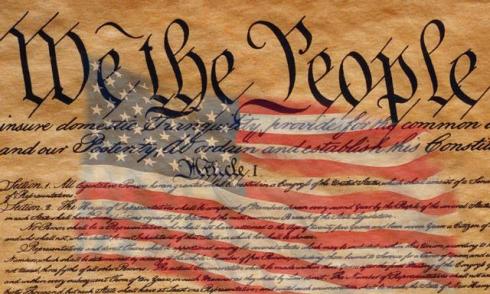 Constitution Lesson #2 – I feel that there is no room for interpretation on this. The reason this amendment was put in the Constitution was so that the people would be equally armed and capable of throwing off the shackles of a tyrannical government if it ever came to that again. For those that argue that we do not need firearms available, try using an M-16 A2 against a Tank. We are already out gunned and the underdog. If you have any opinion that there should be more gun control and bans than there already are, then you probably do not belong in America. It is very cut and dry. Read, study, discuss, and ask questions.
Constitution Lesson #2 – I feel that there is no room for interpretation on this. The reason this amendment was put in the Constitution was so that the people would be equally armed and capable of throwing off the shackles of a tyrannical government if it ever came to that again. For those that argue that we do not need firearms available, try using an M-16 A2 against a Tank. We are already out gunned and the underdog. If you have any opinion that there should be more gun control and bans than there already are, then you probably do not belong in America. It is very cut and dry. Read, study, discuss, and ask questions.
SECOND AMENDMENT OF THE CONSTITUTION
“A well regulated Militia, being necessary to the security of a free State, the right of the people to keep and bear Arms, shall not be infringed.”
Shall not be infringed. So it’s stops there. It’s unconstitutional to even have to get a firearm ID card, permits, and registration for the firearm
Shall not be infringed! Enough said!
So with ‘them’ wanting to twist in laws of regulations on our purchases, do we stick solely to gun shows and private sales for guns and ammo? I mean, that would be the best option right?
As of right now, that does seem like the best option for many. Again, it is the same as the First Amendment; it really depends on what state you live in anymore. The more the government knows about you, the more they can use against you. No sense in giving them more intelligence that isn’t necessary. I could understand why someone would not want “them” knowing you purchased a firearm.
I still can’t get over the fact that when this was written other than a few cannon some may have had the use of that the actual arms were exactly the same yet some ill informed people think that we should only have muskets. This document is not frozen in time it evolves with the world. If the first amendment covers current communication why can’t they see the second covers current arms?
We have guns registered by state. The others were private sale. But now I even wonder about the ammo I just bought last week at a store. I mean, what else have ‘they’ been monitoring besides our emails and phone calls? Start making your own ammo. Reloading is a useful skill to take up.
Some of the liberals have their heads buried so far up their butt that they actually think the 2nd amendment was created for hunting and recreation.
“Shall not be infringed” says it all. But it also talks about a well regulated militia. And I think that’s a very important part. Together we are stronger.
The discipline and regulation of said militia is important so that you do not have a bunch of disorganized idiots running around trying to play Rambo.
“A well regulated militia…” The army national guard? Or private militias? Which would that apply to?
Private. Thought so. I thought that was private such as the minutemen.
Private; meaning the individual citizen, meaning all of us who individually elect to do so.
Wouldn’t it stand for both as a militia consists of 2 parts, organized (state guards) and unorganized (private militias consisting of every able bodied citizen)?
Having a firearm is not about fighting police or government agents. Having a firearm represents that you are prepared for the absolute worst, heaven forbid. Nobody thinks they are going to stop tanks with an AR. The original purposes of the rifle were for competition shooting, and varmint hunting. I think blaming responsible gun owners is absolute nonsense. I don’t know a single gun owner who would willingly supply arms to a criminal or felon, for any amount. The very nature of half of the gun control arguments derive from fear and ignorance of a craft, hobby and a divine right. Not divine from God, but from Nature. You have the right to defend yourself, and we all know there are awful excuses for human beings on this planet. Every time I turn the news on, or log into Facebook, a girl got raped, a couple got murdered, and we’re on the brink of another war. Enough already. Stop demonizing good, law abiding people. We get it. Stop hurting the working class, and stop demonizing innocent people.
It encourages all citizens to be soldiers so to speak. Well armed to defend freedom, more on a domestic level.
It is so cut and dry that the only point that was possibly discussable was the private militia, and that was short lived. It’s simple and profound.
As is the whole Constitution. It is on two pages for the Constitution and one page for the Declaration of Independence so that it would be short, to the point, and easily interpreted. Very different from today’s legislative/Congressional bills.
A private militia can be commanded by an ex or retired Officer of the US Armed Forces.
Go and by a fresh replica today of the Constitution and the Bill of Rights today. Look at them, and be amazed by the fact they were only 2 pieces of parchment!
Simple yet priceless words.
Militias are perfectly legal. They have to be known to the government, but they are legal. There are many, and at least one in every state.
That is if you want to do it the law way, which is a good idea, or they can shut you down in a hurry, technically.
Many people I know of are part of the state militia but also do “activities” in smaller groups. Squad size, if you will.
The bad thing is that the left wing media has painted a bad picture for militias even though they have not been in a terrorist attack.
Here’s the thing with the militia. You run around calling yourself a MILITIA, and people automatically think NUT JOB. We don’t need this. Instead of running around like idiots, in surplus army gear, just practice shooting with your buddies at a range. The left wing media make militias look like neo Nazi and crazy hillbillies.
Shall not be infringed . . . there is nothing more to be said . . . no one has the authority to take away something God has given.
This is the sad part . . . how can someone paint something as “terroristic” that is perfectly legal according to the United States Constitution?
People pin Patriots in a bad light to convince the weak that “Patriots” are bad and the government is justified for taking our rights away.
The only good thing about the Left is that they make themselves look like total idiots multiple times on a daily basis. What people forget is that liberal sentiment resides on the coasts, but inland, central, northern, and southern parts of the United States are a different world. This is still a 50/50 fight at the least. Sure, liberals control the media, but we are fixing that. Gun owners, both Red and Blue States, are telling the current regime no way their gun control agenda will work and it is falling apart.
“Shall not be fringed upon”. Enough said!
The Second Amendment says ‘the right of the people’, it does not say it is a privilege; and that RIGHT SHALL NOT be infringed. We know that felons are not allowed firearms. It does not pertain to misdemeanercrime too. My question is this. Are the rights of those felons regardless if it’s a violent crime or not, are their rights being infringed upon? I’ve heard said that gun ownership is a privilege not a right. That rights can’t be taken but privilege can. I do know of rights that are trampled on every day. I wonder also if background checks then infringe. The point of a background check would be for them to prepare to infringe.
Insulting Militia is not going to get us anywhere when many people on here are in and support militias. It is a right protected by the Constitution to form militias. I agree that it needs to be organized, but as was stated by the boss earlier, in fighting isn’t going to be tolerated.
But you don’t just have to be a felon domestic dispute will get them taken as well regardless. Form a hunting club, or a marksmanship team. Network with police officers, and sheriff’s deputies whenever possible. Get in good with your neighbors. Practice your sport. Get proficient. This should be your new craft or hobby on the same level of “Bowling, Softball, Volleyball, Flag Football,” or whatever you used to occupy your time with.
When the law was written, most felons would have seen the gallows. No reason to restrict their firearm ownership. Take their lives. They don’t sit on death row clogging up the legal system with endless appeals. Background checks, waiting periods and limits on types and modifications are ALL ways of infringing on our God-given right to protect ourselves from a government that’s gotten too big for its breeches. I’m a firm believer that if you can afford to buy a weapon that’s very much a military weapon, like an M134 Dillon Minigun or an M1 Abrams tank and it’s various ammunition and armament, you should be allowed to.
Host shooting competitions. For the love of god, Develop Rifle Competency!
The first ‘assault rife’- the lever-action repeating rifle, was immediately available to any civilian that had the money to purchase one . . . of course when the second amendment was penned private citizens owned cannon, mortars and naval warships, there was no discussion at that time about limiting possession of ‘arms’ based on their type . . . if you had the money you could own whatever you wanted we’ve gotten very far away from what was intended when the amendment was written . . . for the most part because the elected elite are scarred to death that WE THE PEOPLE might actually remember why that right is enumerated and might actually exercise it in for its intended purpose . . .
THE RIGHT OF THE PEOPLE . . . Shall NOT BE INFRINGED . . . In Simple English . . . Any Questions?
Whoever controls the money and the weapons, has the power . . . That’s what they want . . . And the social media and news media promote it . . . They hope we are too busy playing and not watching . . . .
This amendment is so simple, it raises too many questions. No wonder it’s so difficult for a liberal to understand.
It is well put. It is difficult to have a discussion with people that an automatic firearm should be legal.
“Shall not be infringed ” doesn’t get any more clear than that!!!
Remembering the Warriors of the Past Part II
Remembering the Warriors of the Past Part II.
Jason, as usual, your research and care in honoring our War Heroes is thorough and touching. Continued prayer for the families. Candles lit in their honor and remembrance!
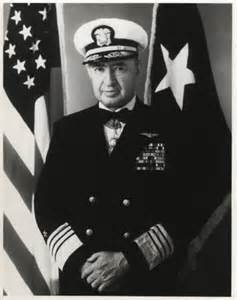
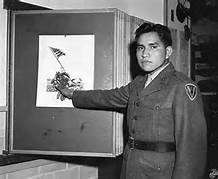

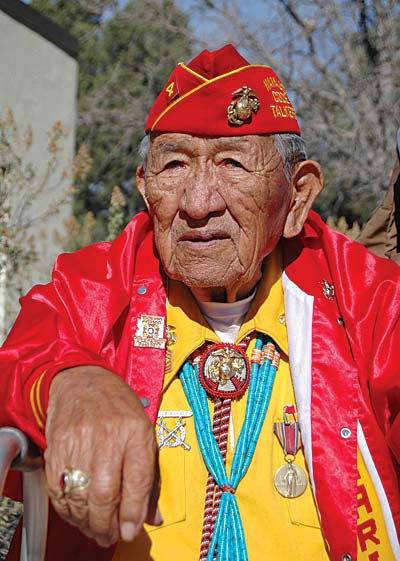



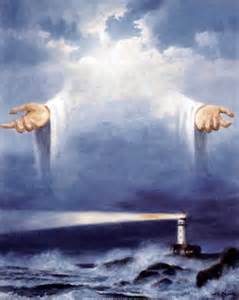
Recent Comments